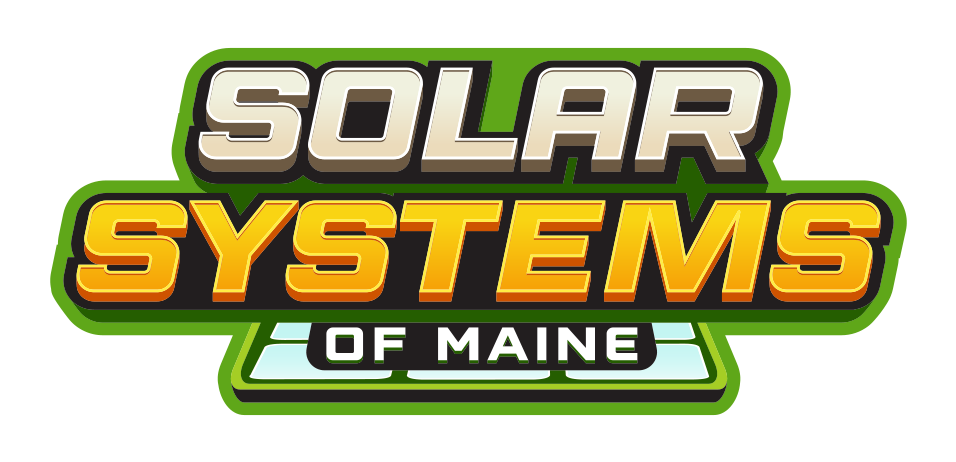Your Maine Guide to Solar Energy
How do solar panels work?
Solar panels are made of photovoltaic cells, which convert sunlight into electricity. The sun emits solar radiation, which is absorbed by the photovoltaic cells. Electrons within the solar cell are energized, escape their bonds and form an electric current. That current, which starts as direct current, is switched to alternating by the solar system's inverter. From there it's used up in the electronics in your home or sent back to the grid.

Why would I want solar panels on my home?
The Savings on energy: The most direct benefit is that you can gain the opportunity to power your own home outside of the electrical grid. That saves you money, and if you generate extra power, you might even be able to get credit on your bill from the electric utility via net metering. The average payback period for solar panels is six to 12 years, according to some sources.
Solar is an abundant power source: According to the US Department of Energy, just one hour of noontime summer sun meets the annual US electricity demand. Depending on your situation, turning it into electricity can save on your electricity bill.
Help with your home value: If you plan to sell your home down the line, having home solar panels can be a major perk to buyers and can help increase your home's value.
Going green: Since solar is a renewable resource, you can shrink your carbon footprint.
Independence from electrical grid failures: Some areas have electrical grids that are less than reliable. If you experience frequent power outages in your area, your own solar power and battery can keep the lights on.
What is Net metering?
Net metering is essentially a billing system to ensure you get credit for the power you produce that flows onto the grid for the utility and others to take advantage of. Your electricity meter spins to measure the amount of electricity you pull from the grid. With net metering, it spins the other way when you send solar energy back to the grid, reducing your overall bill.
Typically, your meter can go both ways and at the end of the month you just pay for what you pull from the grid. This allows your home to use electricity from your solar panels during the day and electricity from the grid at night or when your solar panels won't cover your needs.
How does net metering work?
There is some special equipment required to tie your solar system into the larger grid. It requires permission from your utility, too. When your system is installed on your home, Solar Systems of Maine will take care of all paperwork and permitting through local regulators and the utility.
Getting set up for net metering could require having a new meter installed at your home, or it could mean only a simple technical tweak to your existing equipment. In most instances smart metering technology is likely already installed.
Here in Maine your utility will credit you for the kilowatt hours your solar system is sending back to the grid. You're credited at the same rate that you pay to purchase power from the utility: If you used one kilowatt hour and sent one back to the grid, you wouldn't pay. For more information, please check out the Maine.gov website at Net Energy Billing | MPUC (maine.gov).
Solar panel installation
Most residential solar arrays are installed by a professional. Installing solar panels yourself is technically possible, but you run the risk of voiding warranties and given the lethal amount of electricity it is extremely dangerous. You should only attempt it if you have the necessary expertise. Our vision statement is to “Be the better solar company option”. We would love to earn your business.
Solar Systems of Maine will advise you on the age of your roof before installation. Replacing your roof before installation may ultimately be the cheaper option, since removing the panels to replace the roof will be an additional expense. If a new roof is needed our team is here to help. We will be your trusted partners throughout your solar journey.
Care and lifespan of solar panels
Many solar panels are warrantied to last 25 years, though their useful life is likely longer. On top of that, they're fairly maintenance free, just requiring that you keep them free of obstructions like dirt, leaves and snow. More extensive repairs may be covered by warranty.
Solar panels get less efficient over time, though that downward trend isn't necessarily a problem for you. A typical manufacturer's warranty will guarantee that your solar panels won't lose more than 2% efficiency in the first year and not more than 0.5% per year in the next 24 years. That means your panels are guaranteed to produce at 84% their original capacity after year 25. Some panels will set a higher benchmark -- like 92% -- after 25 years, but you'll still be getting plenty of electricity out of them two decades on.
Do you need a solar battery?
Installing a solar battery in your home will allow you to store excess energy produced by your panels.
There are instances where a solar battery is worth the investment. Those who live off the grid will need a battery to use solar power. And if your area is prone to frequent blackouts or you have medical needs that require refrigerated medicine or machinery, a battery may be worth the cost.
Our team can you walk you through the different options and determine if a battery backup is right for you.

Copyright © Solar Systems of Maine | All Rights Reserved

